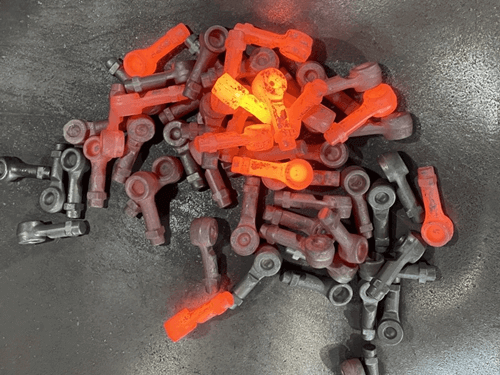Hot forging, an age-old manufacturing technique, is currently experiencing a renaissance in the car industry. It’s not surprising, given the numerous benefits hot forging brings to the table. With the advancements in the technology used for hot forging, the automotive sector is experiencing a revolution like never before. Let’s explore five key ways in which hot forging is changing the landscape of the car industry:
-
Enhanced Material Strength
Hot forging is a process that involves heating metal to high temperatures, typically between 950 and 1250 degrees Celsius, and then deforming it into desired shapes. This high-temperature forging process alters the microstructure of the metal, significantly enhancing its strength and durability. Automotive manufacturers are leveraging this increased strength to create car components that can withstand severe stress and strain, making vehicles safer and more reliable than ever before.
-
Greater Design Flexibility
Another major advantage of hot forging is the flexibility it offers in terms of design. The process allows for the creation of complex shapes and geometries that would be difficult or even impossible with other manufacturing techniques. This design flexibility is crucial in the car industry, where intricate and specialized parts are a norm. Car manufacturers can now design and produce components with enhanced performance capabilities that perfectly fit into their vehicle’s design, leading to more efficient and advanced vehicles.
-
Cost-Effective Production
Hot forging also has significant economic benefits. It’s a highly efficient method, especially for large-scale production. The ability to produce large quantities of components quickly and accurately makes it cost-effective for the car industry. Furthermore, it also reduces waste, as the process allows for almost 100% material utilization. These factors combined significantly reduce the cost of producing components, allowing car manufacturers to produce high-quality vehicles at competitive prices.
-
Improved Fuel Efficiency
The use of hot forging in the car industry is contributing to improved fuel efficiency in vehicles. By allowing for the production of lighter yet stronger parts, hot forging can help reduce the overall weight of vehicles. Lower vehicle weight means less force is needed to move the car, which translates into reduced fuel consumption. In a world where environmental sustainability is becoming increasingly important, hot forging is playing a significant role in the creation of greener, more fuel-efficient cars.
-
Enhancing Electric Vehicle Production
As the global push towards electric vehicles (EVs) intensifies, hot forging is becoming increasingly vital in EV production. Many EV components, such as motor housings and battery holders, require the high strength and precision that hot forging can provide. Additionally, the cost-effectiveness of hot forging allows for the mass production of these components, an essential factor in the push to make electric cars affordable for everyone.
For hot forge products, open the link for some of the best deals.
